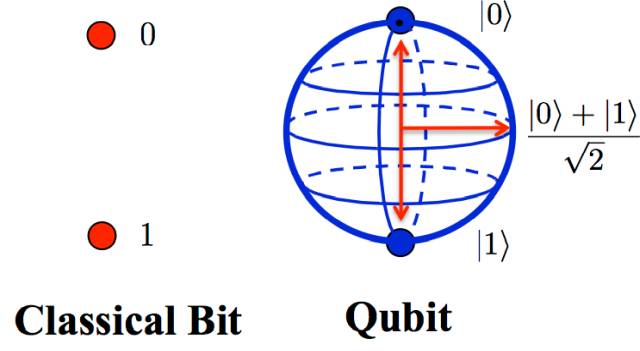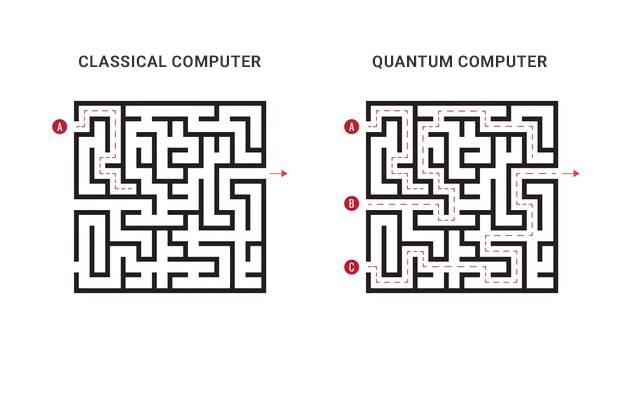Welcome to the wild world of computation’s next frontier! Here we are in 2025, and honestly, quantum computing is everywhere you look. The hype isn’t just hype anymore, it’s real, it’s happening, and it might just change everything about how we solve problems and run our industries. If you’ve been even a little bit curious about what all the noise is about, hey, you’re in the right place. Let’s dive into what quantum computing really means, what’s new this year, and why everyone from scientists to CEOs is paying attention.
What Is Quantum Computing?
Let’s get down to basics for a second. What on earth is quantum computing? In simple terms, it’s a totally different way for computers to crunch information. You know how your laptop or phone works with “bits”, little switches that are either 0s or 1s? Well, quantum computers use something called “qubits.” And here’s where things get fun: qubits aren’t just stuck being a 0 or a 1, they can actually be both at the same time! Seriously.

This strange property is known as “superposition.” Imagine flipping a coin. While it’s spinning through the air, it isn’t heads or tails yet it’s kind of both until you catch it. That’s basically what qubits are doing all the time. Because of this, quantum computers can explore lots of possibilities at once instead of one-by-one like regular computers.
And wait, there’s more! There’s also this thing called “entanglement.” Basically, if two qubits are entangled, whatever happens to one instantly affects the other even if they’re miles apart. Einstein himself thought this was pretty weird (he called it “spooky action at a distance”), but today it’s one of the superpowers behind why quantum computers can do things regular machines just can’t touch.
Quantum vs Classical Computing: How Are They Different?
You might be thinking okay, so how does all this compare to the computers we use every day? Well, let me break it down:
- Classical computers do their calculations one step at a time.
- Quantum computers can handle many calculations all at once because of that superposition magic.
Let’s say you’re lost in a giant maze. A regular computer tries each path one after another until it finds the exit. A quantum computer? It could check all paths at once and pick the winner right away (at least in theory). Sure, classical machines are still perfect for stuff like browsing social media or writing emails. But for huge problems like simulating molecules or cracking tough codes, quantum computers are set to take center stage.

What’s New With Quantum Computing in 2025?
Now for the good stuff, the latest breakthroughs! Honestly, 2025 has been huge for quantum tech. We’ve seen some pretty mind-blowing advances:
- Companies and labs keep building bigger and better quantum chips.
- Not only are there more qubits than ever before, but those qubits are lasting longer and making fewer mistakes.
- Error correction is getting way better (which is crucial because qubits are super sensitive).
- Fault-tolerant quantum computers which keep running even when some qubits mess up, are finally starting to show up.
- Researchers have actually solved small but important real-world problems faster than any classical computer could manage. We’re inching closer to true “quantum supremacy” for certain tasks!
On top of all that hardware progress, there are fresh new algorithms hitting the scene designed specifically for these new types of machines. The science behind it all (a.k.a., quantum information theory) keeps growing too. We’re seeing smarter circuits and creative ways to harness all this power.

Where Will Quantum Computers Make an Impact?
Okay, so what can these machines actually do? Turns out the list is kind of amazing:
- Drug Discovery: Simulate molecules way more accurately than ever before. That means faster development of new medicines and maybe even treatments personalized just for you.
- Materials Science: Design totally new materials with properties we’ve only dreamed about (think ultra-efficient batteries or super-strong metals).
- Finance: Optimize investment portfolios or price tricky financial products way quicker than any of the classic software.
- Logistics: Tackle crazy-complex routing puzzles (like supply chains or delivery routes) in record time.
- Machine Learning: Supercharge AI by letting algorithms find patterns that would take normal computers forever.
And guess what? Companies are already testing out early commercial uses mostly via cloud platforms where you can actually try running programs on real quantum hardware from your laptop at home.
What About quantum Cybersecurity?
Now here’s something people talk about a lot: cybersecurity in the age of quantum computing. Most current encryption now a days relies on math problems that are hard for classical computers but would be a piece of cake for powerful quantum ones (thanks to something called Shor’s algorithm). So yeah it could put today’s digital locks at risk.
But don’t panic! The same weirdness that lets quantum computers crack codes also gives us new ways to make communication even safer like with quantum key distribution (QKD), which uses physics itself as a lock nobody can pick. Right now there’s a mad dash to upgrade our security systems before large-scale quantum machines arrive on the scene.

Looking Past 2025: What Comes Next?
So where is all this headed over the next few years? Here’s what most folks in the field expect:
- Qubits will keep getting more stable and reliable
- Better software tools and programming languages will make working with quantum hardware easier
- More people will train up as “quantum developers” thanks to expanded educational programs
- Hybrid systems will emerge, a mix where classical and quantum processors work together on big challenges
- Scientists will keep experimenting with different kinds of qubits and entirely new designs
Of course there are still plenty of hurdles like scaling up those processors without losing reliability but honestly? Progress has never moved faster than right now.
Which industry do you think will be first to get totally shaken up by quantum computing? Medicine? Finance? Maybe something none of us have thought about yet!
Want To Start Learning Quantum Computing Yourself?
Feeling inspired? Maybe wondering how you could get started learning about all this yourself?
Here are some ways you can jump in:
- Try online courses on platforms like Coursera or edX or straight from major tech companies’ sites.
- Play around with open-source toolkits like IBM Qiskit or Google Cirq, even simulate programs on actual cloud-based quantum chips!
- Dive deeper into textbooks or academic papers if you want more detail.
- Join online communities and forums; connect with fellow learners around the world!
If you know some basic algebra and probability (maybe a dash of physics), great but honestly there are beginner resources out there that don’t assume much background knowledge at all. Don’t let jargon scare you off; exploring this field is half the fun!
Wrapping Up: The Quantum Leap Is Happening
To sum things up: as we stand here in 2025, it feels like we’re living through history in real-time. Quantum computing has moved from wild theoretical ideas into something very real and very powerful with game-changing potential across science, business, medicine, security…you name it.
Sure, there are still challenges ahead before every company has their own room-sized quantum mainframe but trust me when I say: this revolution is picking up speed fast.
So whether you’re dreaming about designing tomorrow’s drugs or just love cool tech stories, keep an eye on this space. The future isn’t just coming; it’s already here…and it’s got qubits!
